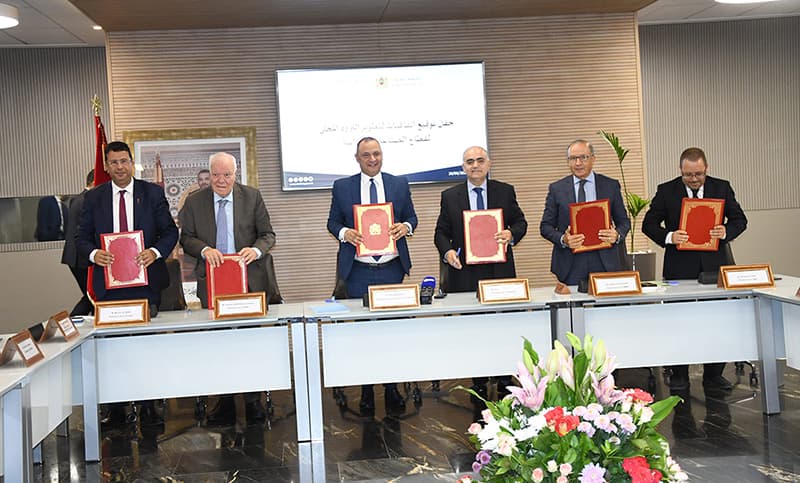Heads of major federations in the agrifood and packaging sectors signed four local sourcing conventions in Morocco’s capital Rabat, agreeing to cut the country’s reliance on imports and create 7,500 direct job opportunities by 2060.
The agreements aim to enhance local integration by creating synergies and partnerships based on mutual benefit between the agrifood industry and other related industrial sectors including the plastics industry; the packaging industry; and the mechanical, electromechanical, and metallurgical industries.
Speaking on the occasion, Morocco’s Minister of Industry and Trade Ryad Mezzour stressed on the value of the agrifood sector on the Moroccan economy and its strategic importance in the national industrial fabric, given its vital role in achieving food security and sovereignty. “It is also a catalyst for the development of other industrial sectors, through purchases of manufactured inputs whose value today is estimated at 18 billion Moroccan dirhams (MAD), almost 60% of which are imported.”
“We have identified possibilities in the field of import compensation for manufactured inputs, which provides real investment opportunities,” adds Mezzour, considering that the signed agreements respond to the imperatives of mobilising and coordinating the initiatives of the state and the private sector, to build a solid and independent industrial system for manufactured inputs for the food industry.
This partnership is in line with the kingdom’s vision aimed at encouraging competitive local production and the Ministry’s strategy of import substitution under its trade policy.
The connection between the agrifood industry and other industrial sectors was reflected in the federations that signed a framework agreement to develop the local supply of processed inputs to the food industries, including the National Federation of Agribusiness (FENAGRI); the National Federation of Seafood Processing and Valorization Industries (FENIP); Federation of Forest Industries, Graphic Arts and Packaging (FIFAGE); the Federation of Metallurgical, Mechanical and Electromechanical Industries (FIMME); and the Moroccan Plastics Federation (FMP). The partnership is aimed at reducing the impact of the economic crisis and surging prices of raw materials by lessening the MAD 8 billion weight of imports by 2026.
